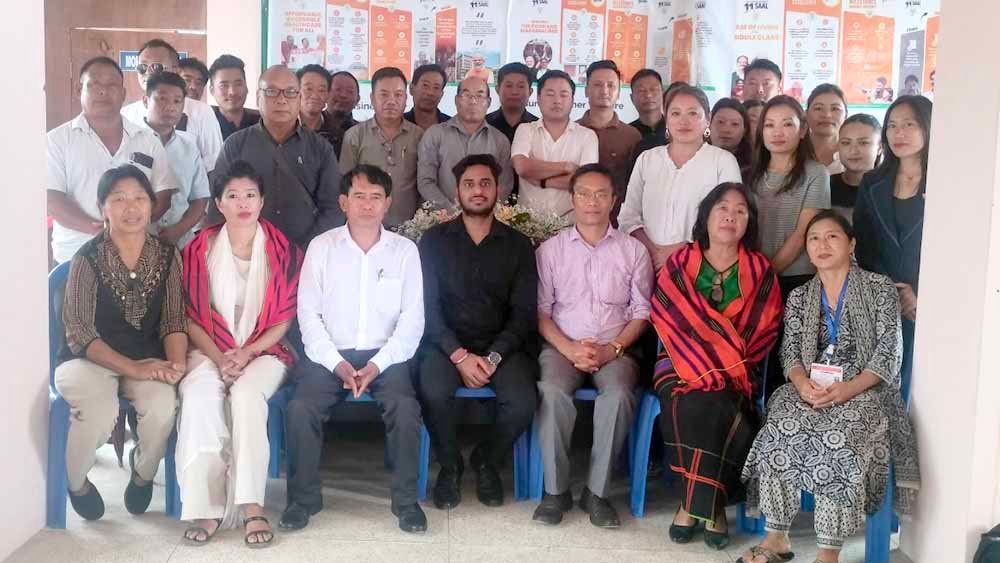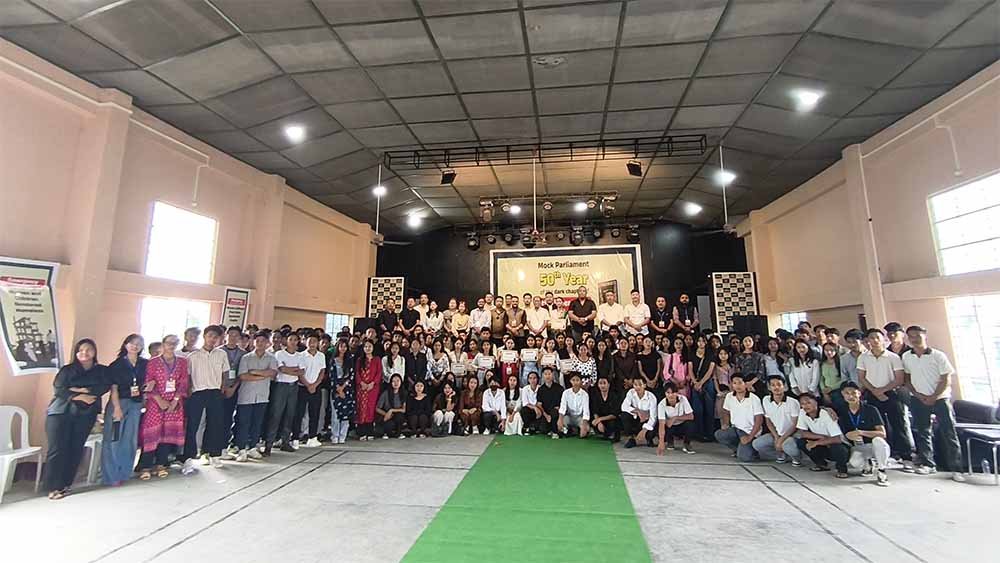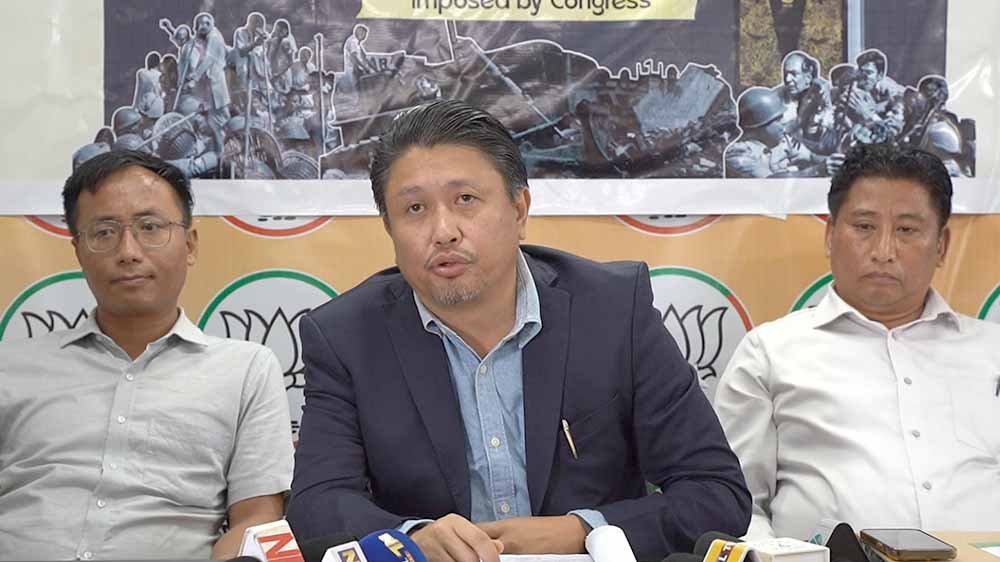As part of the 50th anniversary of the Emergency imposed in 1975, the Bharatiya Janata Party (BJP) and its youth wing, BJYM, organised a series of events across the state to create awareness on democracy, development, and civic responsibilities.
DIMAPUR
In Dimapur, BJP state unit held a seminar-cum-press briefing at its office.
Minister of PHED, Jacob Zhimomi, who also inaugurated a photo exhibition, addressed the gathering along with state BJP vice president and former MLA, H. Haiying. Both leaders strongly criticised the Congress for what they called an attack on India’s democracy during the Emergency period.
Jacob said the Emergency was declared not due to war or rebellion, but to help prime minister Indira Gandhi stay in power after her election was invalidated by the court. He claimed that press freedom was curbed, institutions weakened, and citizens’ rights suspended.
Referring to Congress leader Rahul Gandhi, Jacob said he ignores past incidents such as the Turkman Gate firing and the misuse of the “Garibi Hatao” slogan. He also mentioned the Shah Commission findings, saying it revealed media suppression and wrongful arrests during the Emergency. The minister alleged that Article 352 was misused and democratic institutions were held hostage. He also criticised the Congress party’s dynastic culture and claimed that the Emergency is a reminder of how the Constitution was overridden for political power. Haiying also spoke on the economic unrest during the 1970s and how movements in states like Bihar and Gujarat led to the Emergency. He said press offices were raided, leaders detained, and amendments passed to shield Indira Gandhi from accountability.
WOKHA

At Wokha, BJP district unit organised a “Professional Meet on Developed India”. During the meet, BJP Wokha also held a press conference and a public awareness programme to highlight the achievements of the central government over the past 11 years.
Addressing the gathering, BJP Wokha president Rhanbemo Odyuo spoke on various development works in the district and improvement in road connectivity. He said central schemes have benefitted both youth and the general public.
Mahila Morcha president Caroline Patton shared that central schemes helped formed Self Help Groups (SHGs), which have empowered rural women with financial independence and confidence.
Deputy chairperson Wokha Town Council, Nzano P Kikon, highlighted challenges in waste management and appealed to the public to maintain cleanliness and cooperate with the council.
Skill development officer Anuranjan Singh informed that Wokha ranks seventh in Nagaland’s District Domestic Product (DDP). He called for collective efforts to raise its rank and highlighted Wokha’s banana production potential, while pointing out the need for better processing and marketing support for farmers.
In the health sector, Dr. Mhonjan Kithan, medical superintendent of Wokha District Hospital, encouraged people to avail services under the Ayushman Bharat scheme.
He said the Ayushman card is accepted at several health centres across the district.
Lotha Eloe Hoho vice president, R. Thungbeni Ezung, urged women to actively participate in development activities. She noted progress made through government support, though gender inequality still exists in some areas.
The event concluded with the party carrying out a plantation drive and showcasing its community development initiatives.
CHÜMOUKEDIMA

Meanwhile, Bharatiya Janata Yuva Morcha (BJYM) Nagaland conducted a Mock Parliament session at Mount Mary College, Chümoukedima, to educate students on democratic processes and the legacy of the Emergency. The event aimed to create awareness among youth about the impact of the Emergency imposed by the then Congress-led government under Prime Minister Indira Gandhi.
BJP national vice president M. Chuba Ao graced the occasion as the inaugural guest. In his address, Chuba described the Emergency as a “dark chapter in India’s democratic history” where civil liberties and press freedom were suppressed.
Recalling his experiences, Chuba noted that the Emergency was not due to war but internal political unrest. He shared how the country was divided, and people lived in fear as democratic rights were curbed.
Chuba also spoke about national unity and governance, citing India’s diversity and the importance of inclusive leadership.
He briefly mentioned the Naga political issue, expressing hope for a peaceful resolution through dialogue.
Encouraging the students, he said the youth should understand governance and democracy, and participate actively in shaping the future.
Bharatiya Janata Yuva Morcha state secretary Niuto Murumi chaired the programme, while BJYM president Hinoka Chophi delivered the welcome address and felicitated the guests. Bharatiya Janata Yuva Morcha Dimapur general secretary Chubatoshi proposed the vote of thanks.
The highlight of the programme was a lively Mock Parliament session where students simulated real-time legislative proceedings and debates.
A valedictory session followed thereafter.

